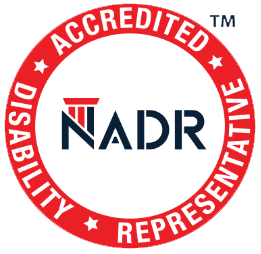Your Social Security disability benefits are not permanent. Whether your long-term disability will eventually improve or remain the same throughout your life, the Social Security Administration (SSA) will periodically conduct continuing disability reviews. These reviews serve to re-verify your eligibility. If the SSA determines that your condition has improved, it may end your payments. You may be subjected to several continuing disability reviews while you receive disability payments. Disability Support Services has extensive experience helping benefit recipients through this process. Contact us to discuss your case and the assistance we can provide during your review.
Read more →Social Security Disability Insurance (SSDI) benefits provide a lifeline for those who develop long-term disabilities. Since you paid into the system, you are also entitled to receive these benefits if you become eligible. However, the Social Security Administration (SSA) rigorously enforces eligibility requirements. Thus, your SSDI application must include clear evidence of your disabling health condition.
Read more →If you have a disability that has made it impossible to work for at least 12 months, or if you’re over 65, you could be eligible to receive Social Security Administration (SSA) disability benefits. As with other programs that the government handles, applying for and receiving the benefits can be more complex than it first appears.
Recently, the Social Security Administration made significant updates to these disability benefits. Here is what you need to know about these updates and what they mean for you.
Navigating the complexities of disability benefits can be daunting, especially when it comes to understanding how medical conditions are assessed. One critical tool the Social Security Administration (SSA) uses in this process is the “Blue Book.” Officially known as the Disability Evaluation Under Social Security, the Blue Book is a comprehensive guide that outlines the criteria for evaluating whether individuals qualify for Social Security Disability Insurance (SSDI) or Supplemental Security Income (SSI) based on their medical conditions.
Read more →The Social Security Disability 5-Year Rule, also known as the “Duration of Work” rule, is an essential eligibility requirement for individuals seeking Social Security Disability Insurance (SSDI) benefits in the United States. This rule determines whether an applicant has worked long enough and recently enough to qualify for SSDI benefits.
Read more →Social Security Disability (SSD) benefits stop when you become ineligible to receive them. But the Social Security Administration (SSA) has many standards for eligibility. If you become ineligible under any of these standards, your SSD benefits will end. Here is some information about the rules the SSA uses to determine when Social Security Disability benefits stop.
Read more →As you work through the process of securing your Social Security disability benefits, you might run across the term “functional limitations.” Evidence of a physical, mental, or environmental limitation could help you secure benefits or win an appeal. Here is some information about what constitutes a limitation and how the Social Security Administration (SSA) uses evidence of these conditions.
Read more →Filing for disability benefits can be a difficult process. The Social Security Administration (SSA) has a strict list of criteria that applicants need to meet for their particular medical condition for the claim to be approved. These stringent standards leave tens of thousands of Americans who are struggling with disabilities without necessary support through government aid. The good news is there are options for those who don’t meet the standards of the SSA for disability benefits. To learn more about medical-vocational allowances, read on.
Read more →The Social Security Administration (SSA) provides disability benefits for many different mental disorders. These disorders include congenital disorders, conditions resulting from physical or mental trauma, and degenerative disorders. Regardless of your specific disorder, the SSA determines eligibility for benefits based on the duration and severity of your symptoms. If your disorder renders you unable to work for at least one year, the SSA will probably find you to be eligible for disability benefits. Here is a quick guide to disability benefits for mental disorders and an overview of how the SSA determines eligibility.
Read more →











